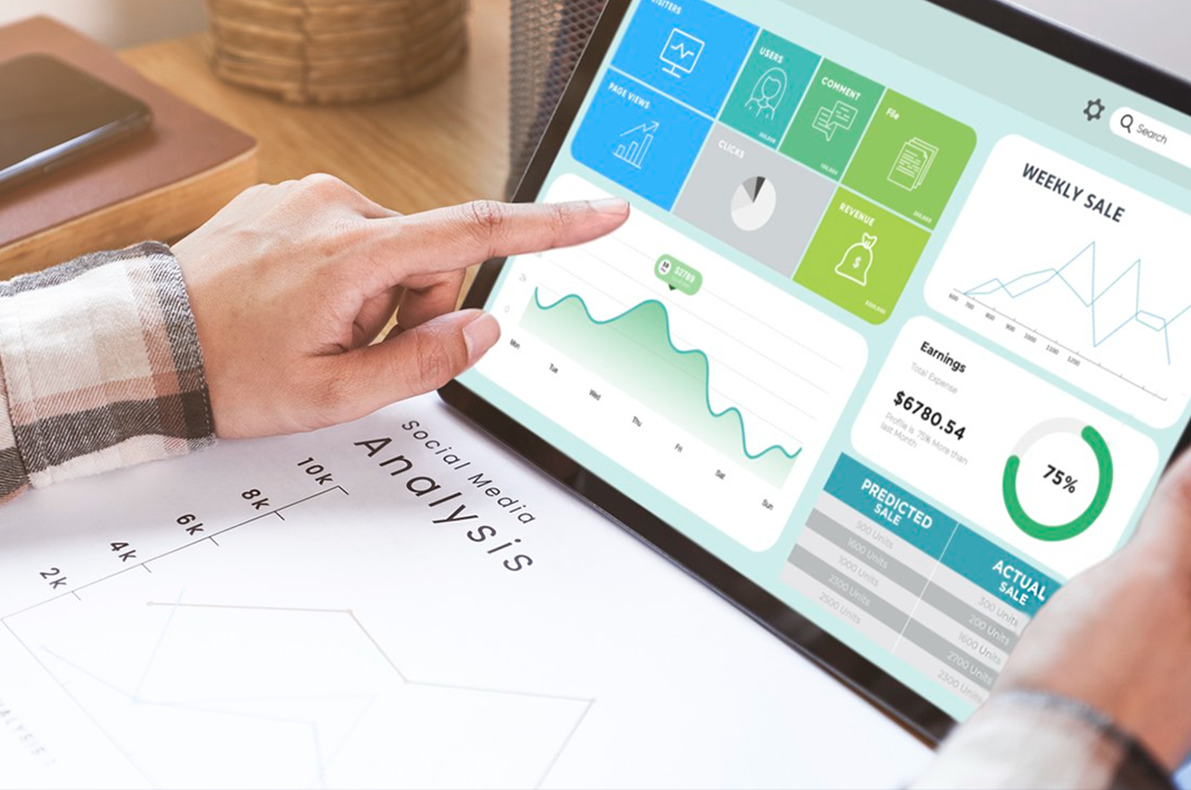What is Sales Automation?
What is Sales Automation? Sales automation refers to using technology to automate repetitive sales tasks to optimize the whole sales process. The goal is to save the sales department from doing lots of manual, administrative work so they can spend more time selling to customers. These sales automation tools are software programs and applications designed specifically to automate parts of the typical sales workflow. Some common capabilities include scoring leads, sending sequenced emails, managing customer relationships, and creating reports to track sales progress. The most useful tools seamlessly integrate into existing platforms like Microsoft 365 without needing extensive training or relying on IT support. Companies can choose automation solutions that align with their budget and business priorities. With the right system in place, sales automation helps teams be more productive and efficient.
Why Choose a Sales Automation Tool?
In today's fast-paced business climate, it’s crucial to have an optimized sales process to achieve success. But overseeing every step of outreach, follow-up, proposal creation, and more is extremely time-consuming without automation in place. Sales automation tools bridge this gap.
How Sales Automation Helps
Sales automation brings several key benefits, including:
- Freeing up sales teams to focus on selling rather than getting bogged down in manual tasks
- Ensuring consistency across all sales activities and touchpoints
- Reducing human error that is inevitable with manual work
- Providing transparency into pipeline sales performance
- Expediting deals by significantly cutting down sales cycle times
The right sales automation system tailors to a company’s existing software ecosystem for seamless integration.
With these advantages in mind, let us look at some specific sales automation processes that can optimize parts of your sales operation.

Sales Automation for Budget Approval
Managing budgets can be difficult without a centralized automated system. Finance teams often use spreadsheets or legacy software that sales representatives find cumbersome and confusing to navigate. This makes it tedious for sales teams to get approvals for things like travel expenses, event sponsorships, software subscriptions, etc.
Best sales automation tools can simplify budget approvals by providing self-serve forms that allow sales representatives to submit budget requests digitally through workflows. Finance has real-time visibility into all budget requests and can quickly approve or modify them.
Workflow automation ensures proper multi-level approvals, with automated notifications along the way. This takes the frustration out of budget approvals so sales representatives can stay focused on selling. The centralized system also gives finance leaders better control and visibility over spending.

Automate Sales Commission Processing
Calculating and disbursing sales commissions is another area where sales automation can have a big impact. Doing commissions manually in spreadsheets tends to be an error-prone process that leaves both finance and the sales department unsatisfied.
Robust sales automation software allows accurate commissions to be automatically calculated based on deals closed in the CRM. This eliminates the need for commission reports to be compiled manually.
Workflows can be set up for automatic validation of commissions by finance before disbursement. Rules-based approvals mean reps do not have to wait around for their commission checks.
This automation provides transparency for representatives on their earning potential and accelerates the payment process. For finance, it reduces administrative overhead while enforcing compliance.

Simplify Partner Onboarding with Sales Process Automation
Streamlining your partner onboarding process is pivotal to getting channel partnerships producing quickly. However, managing the paperwork and cross-functional coordination of onboarding can hinder your efforts if done manually.
This is an opportunity to leverage sales automation tools like self-service portals with built-in workflows. Key steps of your partner onboarding process can be automated:
- Online registration with integrated e-signature on agreements
- Automatic routing for internal reviews
- System notifications for required tasks
- Digital asset delivery
- Automated tracking of deal registration
With these time-intensive tasks automated, you can accelerate partner onboarding. Your channel team can reallocate time to active enablement and joint sales calls with partners. This gets your partner network ramped up faster so they can start driving revenue.

Set and Manage Targets with Sales Automation
An indispensable part of managing a sales team is setting targets — usually on activities like calls made, demos scheduled, and deals closed each week or month. Without visibility into performance against targets, it is impossible for managers to accurately evaluate.
Rather than tracking targets in spreadsheets, the best sales automation software allows direct integration with your sales automation tool. Activity targets can be defined based on customized sales stages. Performance towards targets is automatically calculated dynamically based on the latest data.
Both managers and representatives get real-time visibility into target achievement down to granular details. Automated notifications can be triggered when targets are met, encouraging healthy competition among team members.
Using sales automation tools to manage targets ends manual reporting, optimizes visibility, and allows initiative-taking coaching — boosting sales performance.
Automate Pricing and Discount Approvals
Empowering sales representatives to make pricing decisions on the fly can lead to profit margin erosion. On the other hand, a convoluted offline approval process for pricing exceptions hampers deal progress. Sales automation software helps strike the right balance.
Workflows can be established so the sales department can easily initiate price exceptions or discount requests digitally when needed. The backend rules engine then automatically runs approvals based on deal criteria like size, product type, customer tier, etc.
Approved pricing gets logged directly into deal records for auditing while the salesperson can get real-time status updates on their requests. This prevents unapproved discounts while accelerating pricing concessions when necessary, keeping deals on track to close.
Automate Promotion Management
Launching sales promotions like discounts, coupons, or free trials requires coordination across sales, marketing, and product teams. Tracking ROI on promotions also tends to be very manual, done through spreadsheet reports. Sales automation software helps overcome these challenges.
Promotions can be easily configured by sales ops including parameters like eligibility criteria, valid duration, approval limits, etc. Backend automation ensures alignment with other functions like accounting for projected revenue impact.
Post-launch, customer eligibility for availing promotions gets automatically validated during order processing based on rules established. Dashboards track real-time promotion performance including utilization details.
By applying sales process automation, businesses streamline promotion planning, execution, and monitoring, optimizing both sales velocity and profitability.
Conclusion
Investing in sales automation pays huge dividends for high-growth companies by scaling processes, reducing human errors, and focusing energy on value-add activities.
Choose your sales automation software wisely based on capabilities, ease of use, and flexibility to manage future needs. With the right tools in place, your sales team will be set up for maximum effectiveness and productivity.
Why Titan Workspace Has the Top Sales Automation Tool?
Looking to take your sales game to the next level? Titan Workspace offers the best sales automation tool designed to effortlessly boost team productivity while keeping sales workflows running smoothly. Now you may wonder if this tool will fit your needs or not? Undoubtedly it will as, Titan Workspace easily customizes the workflow depending on specific business needs and demand.
What to expect if using the sales automation tool of Titan Workspace?
Titan Workspace offers a powerful sales automation tool to streamline your sales processes. The list of features includes:
- Ease of use: Titan Workspace boasts a user-friendly interface and no-code/low-code approach, making it accessible even for non-technical users. This can save time on training and implementation compared to more complex solutions.
- Microsoft 365 integration: If your team already uses Microsoft products like SharePoint and Power Automate, Titan Workspace seamlessly integrates with them, eliminating the need for additional software and simplifying data flow.
- Versatility: Titan Workspace caters to various sales processes and workflows across different industries. They offer customization options to tailor the tool to your specific needs, potentially eliminating the need for multiple point solutions.
- Cost-effectiveness: Compared to some established players, Titan Workspace is more affordable, especially for smaller businesses. This can be a significant factor when considering value for money.
- Focus on efficiency: Features like automated lead scoring, task management, and reporting aim to free up your sales team's time and boost productivity.
FAQ’s
- What is a sales automation workflow?
Sales automation workflow refers to automating different stages of the sales process using tools such as CRM software, email sequencers, and sales engagement platforms. This creates an efficient system to manage leads and deals. - What are the 7 steps of the sales process?
The 7 steps of the sales process include:- Prospecting
- Pre-approach
- Approach
- Presentation
- Handling objections
- Closing
- Follow-up
- What sales activities can be automated?
Common sales activities that can be automated include sending initial contact emails, lead nurturing sequences, appointment setting, data entry, lead scoring, contract tracking, and creating quotes.




Your email address will not be published. Required fields are marked*